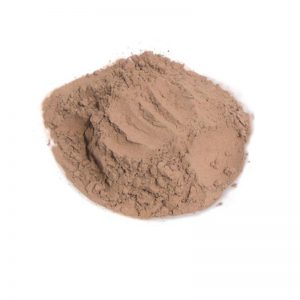Product Details
Place of Origin: Bulgaria – Trade
Botanical Name
Form
Rose hip is the fruit of a rose. Also known as rose haw or rose hep. The wild dog rose is the type of rose most often cultivated for their hips. This plant grows up to ten feet tall and bears a white, very fragrant flower. Once the flower has bloomed, and all the petals have fallen off, the hip is picked and used in a wide variety of preparations.
Rose hips are the best source of vitamin C; they contain 50% more vitamin c than oranges. A single tablespoon of the pulp gives an adult more than the recommended daily allowance of 60 mg. They can be eaten raw, after being put through a blender, or soaked in water overnight and then cooked in the water for about half an hour. Because of the high vitamin C content they are an excellent immune system booster, and are often used as a supplement to prevent or treat a cold. The pulp from rose hips may be used in sauces or made into jelly and from Eastern Europe it is made into jam called Sipak.
Health Benefits
Antioxidants
Because they contain a variety of antioxidants; carotenoids, flavonoids, polyphenols, leucoanthocyanins and catechins, rose hips are considered to be a good cancer preventative. These same antioxidants are also used to prevent against cardiovascular disease.
Anti-inflammatory properties
Many complementary medicine practitioners use rose hips to treat wounds and inflammations. Research in Denmark and Germany used a rose hip remedy. The results showed that the remedy was actually very beneficial in treating rheumatoid arthritis. The group taking the remedy had an improvement in their mobility by 20 to 25%. They experienced less pain and a general overall improvement in mood and the way they felt. The studies showed significant improvement in individuals suffering from osteoarthritis as well, proving the anti-inflammatory properties.
Immune system
The vitamin A is also beneficial to the immune system. It can help to prevent infections from both bacteria and viruses. It helps the immune system to fight off any infections .
Treats skin ailments
The astringent qualities of rose hip oil makes it a valuable addition in cosmetic preparations. It has the ability to help regenerate new skin cells. This can be used to treat scars, acne and burns. While it is an astringent, it does not dry out the skin; actually it helps to re hydrate it, keeping the moisture in. Drinking rose hip tea daily will also benefit your skin. Rose hips have a high vitamin A content. Vitamin A is commonly referred to as the “skin vitamin”. It helps to regenerate skin cells, healing wounds and scars. It also helps to keep the skin elastic and nourished.
Lycopene is a pigment that’s naturally found in red fruits and vegetables like tomatoes, watermelon and – of course – rose hips. It’s an antioxidant packed with powerful benefits. In addition to promoting brain and immune functions, lycopene protects the skin from free-radical damage, reducing skin cell damage and redness caused by the sun and pollution.
Lycopene also strengthens the junctions between cells and improves the processes related to cell metabolism — which is how cells grow and reproduce. This means it can improve the texture and appearance of the skin. It also strengthens the skin by enhancing its ability to produce collagen and reducing the DNA damage that leads to wrinkles.
Diuretic and laxative
The fruit acids and pectin in rose hip tea is a mild diuretic and laxative. It is used to improve, and relieve the symptoms of kidney disorders, or to help in the case of mild constipation.
Equine Benefits
Rose hips are a great source of Iron and can be used to rehabilitate weak kidneys .They are also a good tonic for liver based ailments .
Rosehips have been feed to horses to improve the horses immune system or to assist with recovery from trauma.
Their active ingredients are believed to be able to support the natural repair of damaged tissue, help circulation and support good stomach health .Rose hips are often fed to horses recuperating from illness or injury as they help to restore the immune system .Feeding Rose hips as part of the daily diet is beneficial for preventing illness. The vitamin C in rose hips acts as a natural antihistamine, which can assist the allergy-prone horse. Bioflavonoids, as well as having potent antioxidant and anti-inflammatory activity, enhance vitamin C’s ability to strengthen blood vessel walls, and this effect contributes to rose hips’ reputation for encouraging healthy hoof growth. Rose hips can also help alleviate gastric inflammation and diarrhoea.
Rosehips for horses contain:
- B vitamins
- Calcium
- Copper
- Lutein and lycopene
- Magnesium
- Phosphorous
- Powerful antioxidants
- Silica
- Vitamins A, C, E and K
Feed to:
- Support natural recovery from illness or injury
- Support stomach health
- Horses requiring support to their immune systems
Please note : due to high sugar content
If your horse has any metabolic problems you need to be aware of this fact that Rose hips do contain a large quantity of sugar. This would be a concern for a horse predisposed to dietary laminitis, with insulin resistance (IR), equine Cushing’s (PPID) or equine metabolic syndrome (EMS).




Reviews
There are no reviews yet.